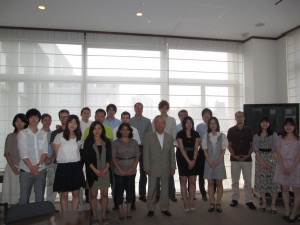Executive Summary
“Globalization and regional integration require effective regional infrastructure— transport, communications, and energy—to widen and integrate markets, achieve economies of scale, encourage participation of the private sector, and attract foreign direct investment and technology”. This research report will provide an overview of the relevant information regarding the energy, transportation and telecommunications sections in a prospective Canada-Japan Free Trade Agreement (FTA)/Economic Partnership Agreement (EPA). In referencing past trade agreements, this report aims to identity the perspective countries’ key negotiation objectives, as well as some of the areas where concessions can be achieved.
Energy is often referenced in terms of natural resources, but for the purposes of this report, energy regulatory services will refer specifically to the transportation, transmission or distribution, purchase or sale of energy. Telecommunications services will include the transmission and reception of signals by any electromagnetic means. And transportation services will be discussed in the context of maritime transport and air transport. Both Canada and Japan would like to encourage foreign investments, promote value-added services and increase market access for service providers in these sectors. While the two countries have made strides towards liberalizing these sectors, there still remain a few points of contention. For example, the Ontario Feed-In-Tariff program for renewable energy contains a local content requirement which gives generators incentives to purchase photovoltaic cells and other equipment originated in Ontario. Consequently, products exported by Japanese companies are becoming less favourable. According to Japan, the Ontario government is violating national treatment obligations under the WTO.
Canada and Japan share a natural synergy as trading partners: Canada has an abundance of natural resources, and Japan has capital and is a leader in technological research and development. Both countries support the liberalization of trade in the service sectors, recognize the importance of transparency, and emphasize the need to improve investment conditions. This dynamic creates a good opportunity for complementarities, especially in the arena of energy-efficient technologies (i.e. ‘greener’ energy).
Energy, telecommunications and transportation all fall within the trade in services category of the WTO, which is governed by the General Agreement of Trade in Services (GATS). The GATS treaty outlines some of the key disciplines and principles of the WTO, and it was created to extend the multilateral trading system approach to the service sectors. This report will consider the GATS treaty to be the basis of which the prospective Canada-Japan FTA/EPA will build upon, ensuring compliance to WTO trade regulations and standards.
This report is divided into four sections: party comparison, cross section comparison of texts, additional notes and information, and the appendix which will include relevant sections of past FTA/EPA signed by both Canada and Japan. The party comparison section will introduce the current situation of the energy, transportation and telecommunication sectors in Canada and Japan, compare the main objectives of both countries and propose areas of common interest and possible disputes. The additional notes and information section contains relevant portions of the Canada-Japan Economic Framework and Joint Study, and several of the GATS Annexes related to the three service sectors.
NOTE: Changes during the negotiation simulation:
– We collectively decided to put Energy under the Goods – Natural Resources sections.
– Due to time constraints, we excluded Transportation altogether.
